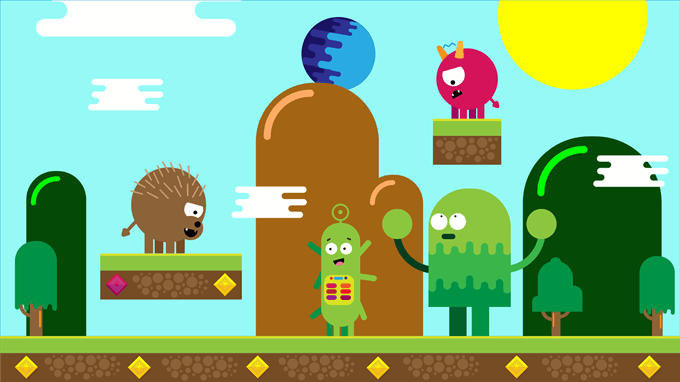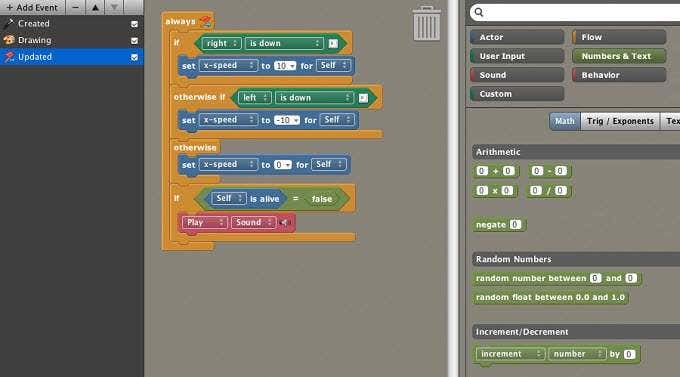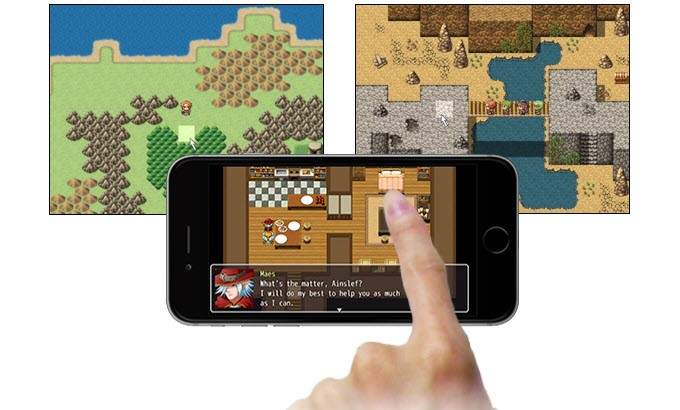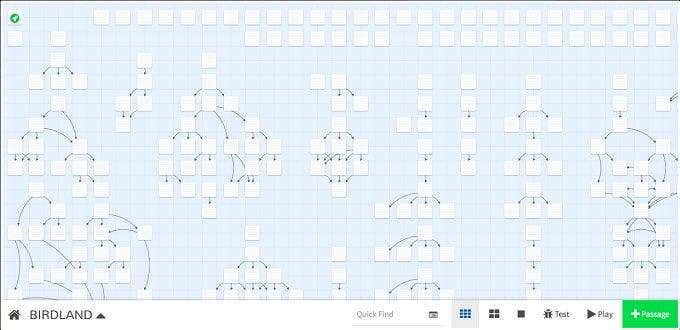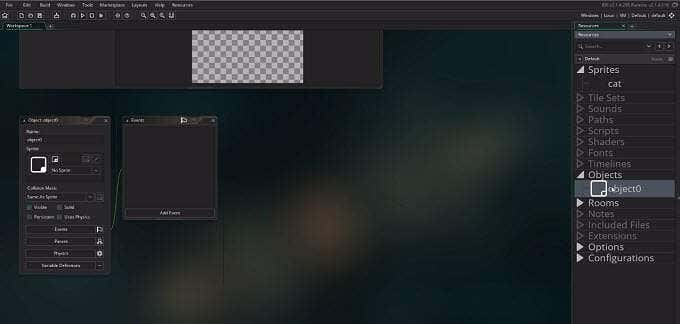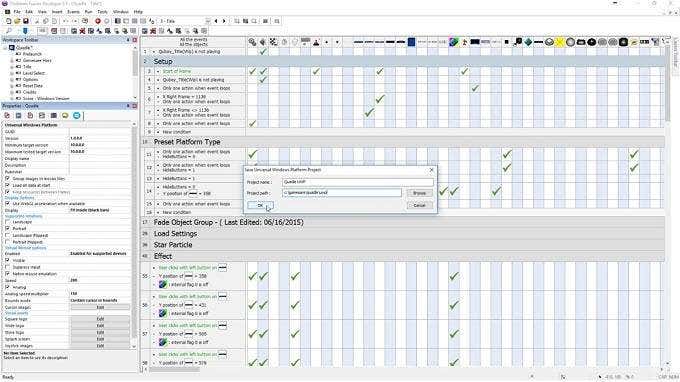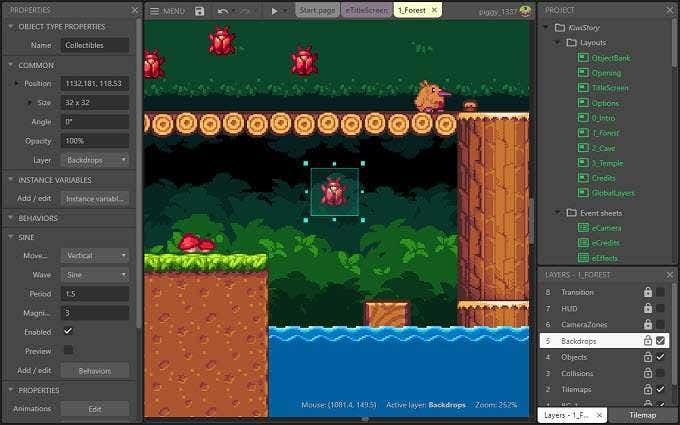The video game titles that get the most publicity are created by teams that have dozens or even hundreds of specialized members. These can be graphic artists, programmers, writers, designers and more. So it might seem like only those with endless budgets and talent pools should bother stepping into the world of game development. Things couldn’t be further from the truth. Not only is this the best time in history for small, independent game creators. It’s also the easiest it’s ever been to bring your video game vision to fruition. In the early days of video game development, you pretty much had to code against the metal. Coders used assembly language, later moving on to high-level languages such as C. You needed to know the hardware intimately, in order to squeeze every last ounce of performance from it. These days you can buy game engines off the shelf and there’s a plethora of game creation tools that non-professional, non-technical aspiring developers can use to bring their vision to life. The six packages highlighted here are aimed at taking the pain out of game development both in terms of cost and technical skill. Some have even been used to create critical smash hits, earning their developers life-changing paychecks. So read on and perhaps you’ll find the tool that will finally bring that game you’ve always wanted to make a reality.
Stencyl
Stencyl is a subscription-based game creation tool that lets you easily create 2D games for multiple platforms. Once your game is ready, you can publish it as an app to both Android and iOS, but all desktop platforms and browsers are also supported. If you like mobile games, there’s a good chance you’ve actually played something made with Stencyl. More than a few games authored with this tool have cracked the top 10 on the various app stores. Wrassling is one particularly fun title that got some good press back when it was released. Stencyl prides itself on the fact that authors don’t have to wrangle with any code at all. At least not in its raw form. When it comes to game logic, they’ve brilliantly opted to use a puzzle piece system where you snap the different logical arguments together and then fill in the variables. So in reality there’s quite a bit of “coding”, but it’s no harder than building with LEGO is we’re being honest.
RPG Maker (Various Versions)
JRPGs still represent a thriving genre and now you can easily make your own game in the vein of classic Final Fantasy games with RPG Maker. There are quite a few versions of RPG Maker out at the same time, supported in parallel by the developer. It’s a good idea to double check which version of the tool best suits your needs, since they have some features exclusive to specific versions. For example, while it may be tempting to opt for RPG Maker XP, since it is the cheapest. However, you can’t do things like have character portraits next to speech bubbles. On the other hand, XP still has a strong following due to the preference of some for it’s map system. Regardless of which RPG Maker version you end up going for, they are the de facto standard in JRPG-style game creation tools and you can sell your final game with the provided licence. If you want to make this specific style of game (or something similar with only a little bit of modification) you absolutely have to make RPG Maker the first stop on your itinerary. RPG Maker has always been a Windows game creator, but it is now possible to publish to other platforms, such as Android, albeit with a little elbow grease to get it all to work. Some of the most successful games made using RPG maker include To The Moon and Skyborn. Games which would easily have been critical hits in the heyday of classic JRPGs.
Twine 2.0
Twine pushes the limits of what should count as a game creation tool, but is still comfortably on the right side of the dividing line. It was originally punted as a tool to build choose-your-own-adventure type experiences. Twine is an Open Source tool that basically let’s you construct a massive network of story nodes and then publish it as a working HTML app. What elevates Twine from being an interactive narrative tool to something that can actually make games is it’s scripting abilities. This allows you to do things like add character stats and have random events. This has made it possible for people to build simple dungeon crawlers and add gameplay to their stories. Twine 2.0 is certainly one of the most rudimentary tools on this list, but in the right hands it can be used for some incredibly powerful results. Interestingly enough, the creators of Black Mirror Bandersnatch used Twine as a production tool, to keep track of all the plot threads.
Game Maker Studio 2
Game Maker Studio 2 is the latest in a very long line of game authoring packages stretching all the way back to 1999 when it was known as Animo. This is a tool aimed at making 2D games and it comes with just about everything you’d need to make a game in the 2D style. Some 3D stuff is possible, but moves out of the generally simple and intuitive environment of the 2D creation system. Game Maker Studio lets you animate your 2D objects, draw original 2D primitives and achieve exactly the look you want. It has many intuitive tools to design levels, script events and mechanics and much more. There have been many commercially successful games made with the help of Game Maker Studio, but the most famous title is without a doubt Undertale. A game that has reached cult status, selling hundreds of thousands of copies. Not bad for an indie title created with an authoring tool like Game Maker Studio! This product also has some of the best platform support out there. You can publish to Windows, macOs, Ubuntu, HTML5, Android, iOS, PS4, Xbox One and now even Switch. Game Maker Studio isn’t free, but there is an affordable “Creator Edition”, which limits users to publishing on Windows and Macintosh. You can always upgrade to the “Desktop” licence to expand where your game is available to buy.
ClickTeam Fusion 2.5
Created by French developer Clickteam, Fusion 2.5 is an interesting option for people who want to make 2D games, but don’t want to spend years learning how to code. Clicktean claim that the specialized coding language Fusion 2.5 uses a bespoke coding language so simple that the average use can learn it in less than one hour. There have been a whole bunch of commercially successful indie games made with Fusion 2.5, but the most famous is probably Five Nights at Freddy’s. The developer used Fusion 2.5 to make the game, along with 3ds Max to pre-render the 3D graphics. It just goes to show what you can do if you’re creative!
Construct 3
Construct 3 is the latest version of the highly popular subscription-based game development tool. Like Stencyl, you pay a monthly (or annual) fee to have access to the development environment. Any games you make are your property and you are free to sell them for profit. Construct 3 is still fairly new, but there have been some notable games made with Construct 2. The Next Penelope has done pretty well for itself and even got a recent Switch Port, although this did take some serious effort and a translation to C++. Construct can export to JavaScript, HTML5 and a few other PC and web compatible standards, so there should be no lack of audience for your title. There’s native Android and iOS support too! The visual scripting system is probably Construct’s biggest selling point and is touted as a particularly intuitive take on game logic design. The pricing is pretty reasonable too, especially if you consider how rich a hit indie game could make you!
Making Your Own Blockbuster
The gaming world is rife with stories of small indie developers who made it big with that one game no one could put down. A game isn’t good because someone pumped millions of dollars into it. Good games all share a certain mix of innovative game design, polish and a compelling central mechanism. While it’s always a good idea to acquire some core coding and technical skills, these intuitive game authoring tools mean you don’t need to be a jack of all trades to craft that game you’ve always wanted to make. All it takes is dedication and a good idea. So what are you waiting for?
